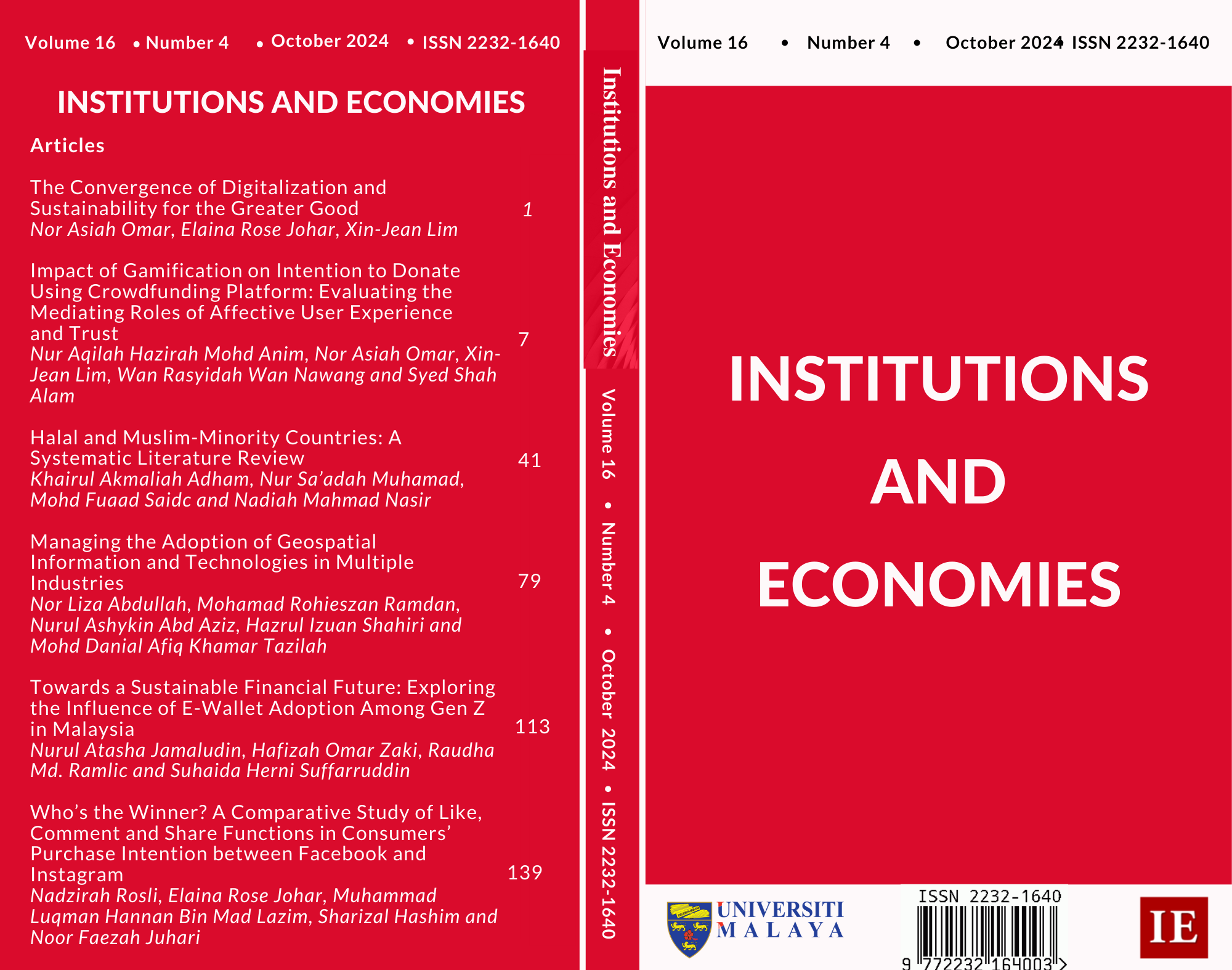Towards a Sustainable Financial Future: Exploring the Influence of E-Wallet Adoption Among Gen Z in Malaysia
Main Article Content
Abstract
The COVID-19 pandemic has prompted a shift in payment approaches, with
a preference for e-wallets. Despite their potential, Malaysians lag in adopting e-wallets.
It is necessary to gain a deeper understanding of the factors influencing e-wallet
adoption, especially through Gen Z. Therefore, we conducted this study using the
Unified Theory of Acceptance and Use of Technology (UTAUT) framework to explore
the factors influencing e-wallet adoption among Gen Z. Interviews with eight members
of Gen Z reveal that advantages like time savings and the ability to manage and monitor
transactions drive the adoption of the e-wallet payment method. Emergent themes, such
as government incentives and the convenience of donating, further delineate the adoption
of e-wallets. The adoption of e-wallets will eventually promote sustainable consumption
by replacing cash transactions and reducing carbon emissions due to the reduced
physical transit of financial resources. This study enhances the UTAUT and suggests
prospective avenues for the growth of e-wallets in Malaysia. Practically, the findings are
advantageous for financial service providers that are enhancing their e-wallets, as well
as for government initiatives to transition to a cashless society and ultimately achieve
sustainable development goals.
Downloads
Article Details
Submission of a manuscript implies: that the work described is original, has not been published before (except in the form of an abstract or as part of a published lecture, review, or thesis); that is not under consideration for publication elsewhere; that its publication has been approved by all co-authors, if any, as well as tacitly or explicitly by the responsible authorities at the institution where the work was carried out. Transfer of copyright to the University of Malaya becomes effective if and when the article is accepted for publication. The copyright covers the exclusive right to reproduce and distribute the article, including reprints, translations, photographic reproductions, microform, electronic form (offline and online) or other reproductions of similar nature.
An author may self-archive the English language version of his/her article on his/her own website and his/her institutions repository; however he/she may not use the publishers PDF version which is posted on www.ijie.um.edu.my. Furthermore, the author may only post his/her version, provided acknowledgement is given to the original source of publication and a link must be accompanied by the following text: The original publication is available at www.ijie.um.edu.my.
All articles published in this journal are protected by copyright, which covers the exclusive rights to reproduce and redistribute the article (e.g. as offprint), as well as all translation rights. No material published in this journal may be reproduced photographically or stored on microfilm, in electronic database, video disks, etc., without first obtaining written permission from the publishers. The use of general descriptive names, trade names, trademarks, etc., in this publication, even if not specifically identified, does not imply that these names are not protected by the relevant laws and regulations.
The copyright owners consent does not include copying for general distribution, promotion, new works, or resale. In these cases, specific written permission must first be obtained from the publishers.

